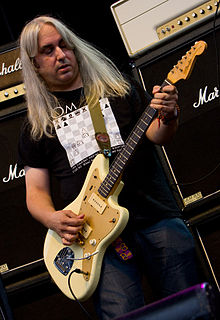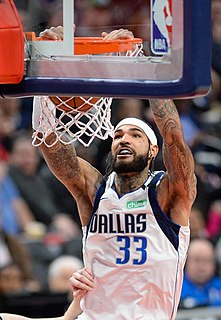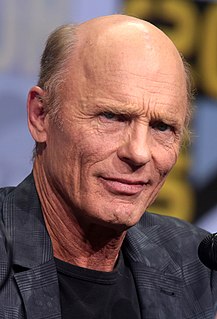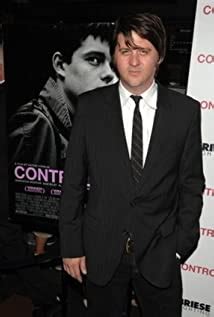A Quote by J Mascis
I was just reading about Paul Simon in 'Uncut', and it was fascinating. I never think about him much or think about his music or anything, but it's interesting to hear his ideas on stuff.
Related Quotes
If it was a biopic about Glenn Greenwald, I would have immersed myself more fully in his personal life and gotten to know him as much as I could, but because it was much more about his relationship to this particular situation, to The Guardian, to Laura Poitras, and to Ewen MacAskill, and Edward Snowden, I was able to really learn a lot about him from reading his book and reading his many articles and accounts of that time.
The script [of Regression] wasn't the draw for me. It was largely Alejandro [Amenabar] and his way of talking. To hear him talking about the script was way more interesting than the script. He wrote it, and so, English is his second language. It's an interesting thing. I've had that before. I was directed by Alfonso Cuarón before, too. It's always interesting when you're being directed by somebody like that. So much of directing is about communication, and finding the right words, and what it means, and how to convey certain emotions and ideas.
When I think about him, I think about him as John and John Wick. I think of John Wick being the assassin part of John. I would say that guy has strong will; never gives up; he's kind; and there's honor about him. He's also a man of strength. There are even some vulnerabilities to him. Most importantly, he's good at his job.
There's been more written about Lincoln than movies made about him or television portraying him. He's kind of a stranger to our industry, to this medium. You have to go back to the 1930s to find a movie that's just about Abraham Lincoln. I just found that my fascination with Lincoln, which started as a child, got to the point where after reading so much about him I thought there was a chance to tell a segment of his life to to moviegoers.
Bach in general was so good with the violin. He just finds the genius way around his music on the instrument. When you think about the fact that the instrument has changed significantly since he wrote for it and his music still really works, it's brilliant. He was definitely ahead of his time. There's something so satisfying about his music. It's beautifully organized and emotional at the same time. I find it highly exciting.
Dear Diary, Today I tried not to think about Mr. Knightly. I tried not to think about him when I discussed the menu with Cook... I tried not to think about him in the garden where I thrice plucked the petals off a daisy to ascertain his feelings for Harriet. I don't think we should keep daisies in the garden, they really are a drab little flower. And I tried not to think about him when I went to bed, but something had to be done.
Grown-ups love figures... When you tell them you've made a new friend they never ask you any questions about essential matters. They never say to you "What does his voice sound like? What games does he love best? Does he collect butterflies? " Instead they demand "How old is he? How much does he weigh? How much money does his father make? " Only from these figures do they think they have learned anything about him.
One thing I learned about Gordon Brown is you've got to have the strength to just get in there and take him on. When you first hear him spouting his statistics and boasting about his record, it can be quite intimidating. But over time, shadowing him, I just realised that a lot of it was rubbish; a lot of it was baloney.
There are Christians who think and speak altogether too much about the power of Satan. They think of their adversary, they pray about him, they talk about him, and he looms up greater and greater in their imagination. It is true that Satan is a powerful being; but, thank God, we have a mighty Saviour, who cast out the evil one from heaven. Satan is pleased when we magnify his power. Why not talk of Jesus? Why not magnify His power and His love?
The Control movie is not about suicide, it's not about epilepsy, it's not about everything else, but it's about an individual who was thinking out of the box and took his own passion and created music. His negativity and whatever else, he bottled them up and spilled them out onto his world of music. I think a sense of hope comes from the end of the movie, in my mind. Some people come out of the movie and think, 'That's the saddest thing I've ever seen,' and others come out and think, 'God, there's optimism.'




































